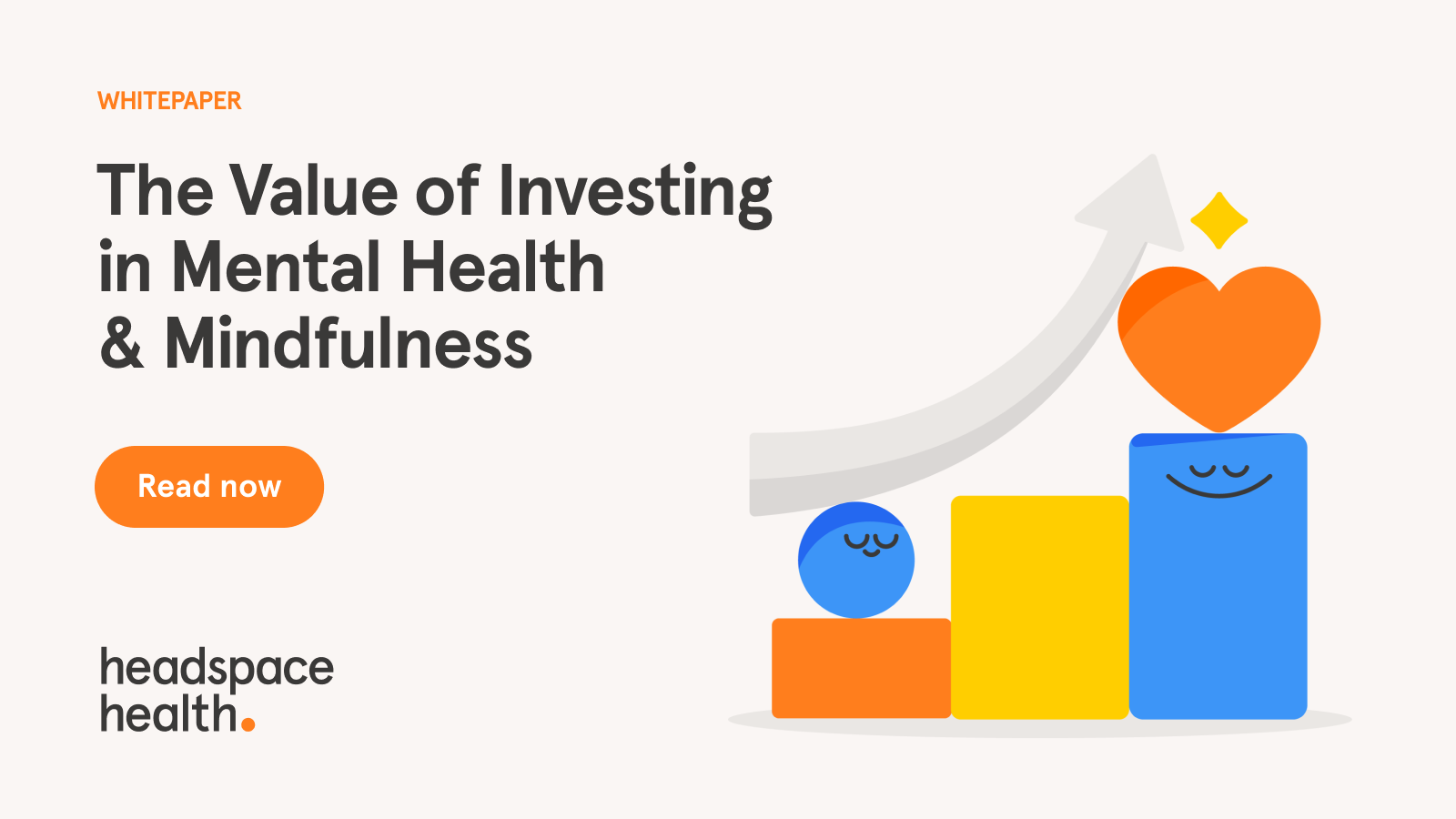A Generation's Future: The Importance Of Investing In Childhood Mental Health

Table of Contents
The Rising Prevalence of Childhood Mental Health Issues
The rates of anxiety, depression, and other mental health disorders in children and adolescents are alarmingly high and steadily increasing. Research consistently shows a significant rise in these issues, impacting children across various demographics and socioeconomic backgrounds. This isn't just an anecdotal observation; robust data supports this concerning trend. For example, studies have shown a significant increase in the number of children and adolescents diagnosed with anxiety disorders in the past decade. This isn't a problem confined to a single age group, either; we're seeing a concerning rise in mental health issues across the entire childhood spectrum, from preschoolers to teenagers.
- Increased screen time correlation with mental health issues: Excessive screen time, particularly the passive consumption of digital content, has been linked to increased anxiety, depression, and sleep disturbances in children.
- Impact of social media and cyberbullying: The pervasive nature of social media exposes children to cyberbullying, body image issues, and unrealistic social comparisons, all contributing negatively to their mental well-being. The constant pressure to present a perfect online persona can exacerbate feelings of inadequacy and anxiety.
- Rising academic pressure and its effects: The increasingly competitive academic environment places immense pressure on children, leading to stress, anxiety, and even burnout. This pressure extends beyond the classroom, impacting their home life and overall well-being.
- Lack of access to mental health resources in underserved communities: Access to quality mental healthcare remains a significant barrier for many children, particularly those from low-income families or underserved communities. Geographic location, financial constraints, and a lack of culturally competent services all play a role.
The Long-Term Consequences of Untreated Childhood Mental Health Problems
Untreated childhood mental health problems can have profound and lasting consequences, extending far into adulthood. The impact on a child's life is significant and multifaceted. Neglecting these issues isn't just about childhood distress; it shapes the trajectory of an individual's entire life.
- Increased risk of mental health disorders in adulthood: Childhood mental health problems significantly increase the risk of developing more serious mental illnesses in adulthood, including depression, anxiety disorders, and substance use disorders.
- Impact on academic performance and future career prospects: Mental health challenges often interfere with a child's ability to learn and succeed academically, potentially limiting their future educational and career opportunities. This can lead to a reduced earning potential and overall economic disadvantage.
- Higher rates of substance abuse and risky behaviors: Untreated mental health issues in childhood can increase the risk of engaging in substance abuse, self-harm, and other risky behaviors as a means of coping with emotional distress.
- Difficulty forming and maintaining healthy relationships: Children struggling with mental health challenges may experience difficulties forming and maintaining healthy relationships, impacting their personal lives and social well-being in adulthood.
Effective Strategies for Investing in Childhood Mental Health
Addressing the childhood mental health crisis requires a multi-pronged approach involving increased funding, early intervention, improved access to care, and a concerted effort from schools, families, and communities.
- Increased funding for mental health services in schools: Schools should be equipped with adequate resources, including mental health professionals and support programs, to identify and address the needs of students experiencing mental health challenges.
- Training for teachers and school staff on recognizing and addressing mental health issues: Equipping educators with the knowledge and skills to recognize the signs of mental health problems in children is crucial for early intervention and appropriate support.
- Expansion of community-based mental health programs: Expanding access to community-based mental health services, including affordable therapy and support groups, ensures that children and their families can readily access the help they need.
- Raising public awareness about childhood mental health: Educating the public about the prevalence and impact of childhood mental health issues can reduce stigma, encourage early intervention, and foster a more supportive environment for children.
- Promoting early intervention programs for at-risk children: Early identification and intervention are critical in preventing the escalation of mental health problems and minimizing long-term consequences.
The Importance of Early Intervention
Early intervention is paramount. The earlier a mental health issue is identified and addressed, the better the chances of positive outcomes. Early support can prevent more severe problems later in life, reducing the need for more intensive and costly interventions in adulthood. This approach emphasizes proactive care and preventative measures.
The Economic Benefits of Investing in Childhood Mental Health
Investing in childhood mental health is not just ethically imperative; it's also economically beneficial. Early intervention and treatment significantly reduce long-term healthcare costs and contribute to a healthier, more productive workforce.
- Reduced healthcare costs in the long run: Early intervention reduces the need for more extensive and costly treatment later in life, resulting in significant long-term cost savings for healthcare systems.
- Increased workforce productivity and economic contribution: A healthy population contributes more to the economy. Investing in childhood mental health yields a more productive workforce in the future.
- Reduced crime rates and societal costs: Addressing mental health issues in childhood can help reduce crime rates and the associated societal costs, creating a safer and more stable community for everyone.
Conclusion
Investing in childhood mental health is not merely a social responsibility; it's a crucial investment in our collective future. By addressing the rising prevalence of mental health issues in children and providing accessible, effective support, we can create a healthier, more productive society. The long-term consequences of inaction far outweigh the costs of preventative measures and early intervention. Let's prioritize childhood mental health. Demand better resources, support early intervention programs, and advocate for policies that protect the mental well-being of our children. Together, we can build a brighter future by investing in childhood mental health today.

Featured Posts
-
 The Trump Tariffs A Legal Showdown
May 02, 2025
The Trump Tariffs A Legal Showdown
May 02, 2025 -
 Descubra A Mini Camera Chaveiro Guia De Compra E Avaliacoes
May 02, 2025
Descubra A Mini Camera Chaveiro Guia De Compra E Avaliacoes
May 02, 2025 -
 Arc Raider Tech Test 2 Sign Ups Open Coming To Consoles
May 02, 2025
Arc Raider Tech Test 2 Sign Ups Open Coming To Consoles
May 02, 2025 -
 Frances Triumph Duponts 11th Conduct Masterclass Against Italy
May 02, 2025
Frances Triumph Duponts 11th Conduct Masterclass Against Italy
May 02, 2025 -
 1 26 000
May 02, 2025
1 26 000
May 02, 2025
Latest Posts
-
 A First Hand Account Attending Nigel Farages Press Conference
May 03, 2025
A First Hand Account Attending Nigel Farages Press Conference
May 03, 2025 -
 Witnessing History My Experience At A Nigel Farage Press Conference
May 03, 2025
Witnessing History My Experience At A Nigel Farage Press Conference
May 03, 2025 -
 Uk Poll Farage Overtakes Starmer As Preferred Prime Minister In Over Half Of Constituencies
May 03, 2025
Uk Poll Farage Overtakes Starmer As Preferred Prime Minister In Over Half Of Constituencies
May 03, 2025 -
 Inside Nigel Farages Press Conference A Reporters Perspective
May 03, 2025
Inside Nigel Farages Press Conference A Reporters Perspective
May 03, 2025 -
 Nigel Farage And Rupert Lowe A Public Spat Revealed Through Leaked Texts
May 03, 2025
Nigel Farage And Rupert Lowe A Public Spat Revealed Through Leaked Texts
May 03, 2025
